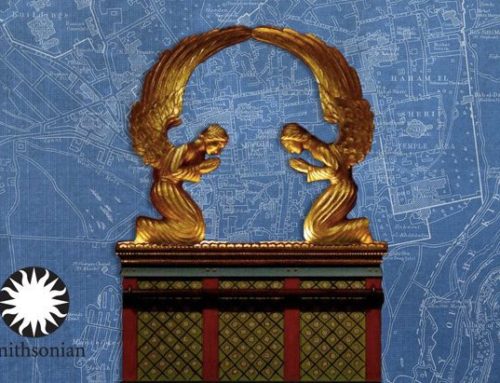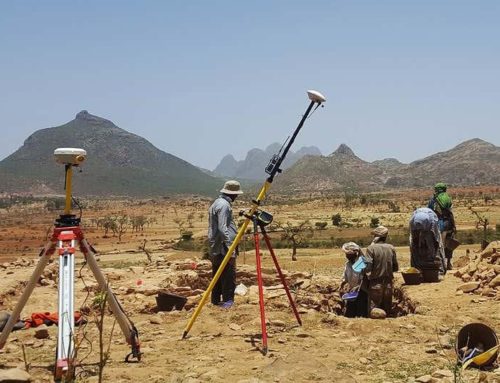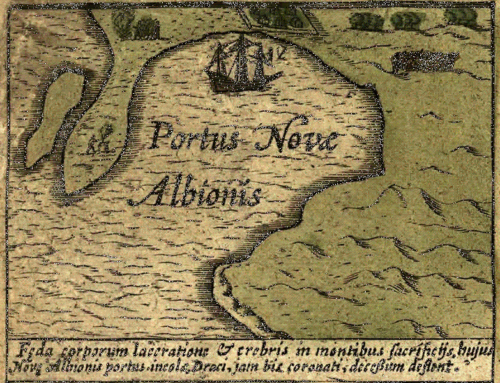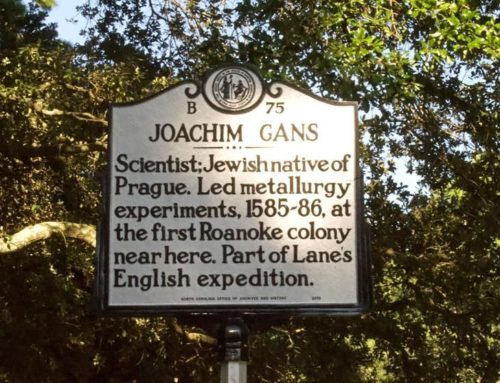Andrew Lawler, author of “Raising Alexandria” talks about the hidden history of Egypt’s fabled seaside capital
* By Amy Crawford
You say that Jean Yves Empereur looks like a literary figure from Forster’s day. In your last story for us you described Egyptologist Otto Schaden as a neo-Victorian. Does archaeology draw these characters, or are you drawn to them as a writer?
Both. But archaeology doesn’t draw people who want to live comfortable lives in suburbs and stay home and commute to work every day. These are people who do tend to be eccentrics. Or mavericks.
It also sounds as if they’d like to live in the past.
Yes, although with Empereur it was interesting. Many archeologists come across as 21st century scientists who are completely focused on getting data. But Empereur is not only a good modern archaeologist, he also had an amazing feel for the cultural history. That’s what struck me: he’s somebody who feels very passionate not just about ancient Alexandria and the glory that it once was, but he also appreciates the more recent past and the way the city has transformed over the millennia.
In his book Alexandria: Jewel of Egypt, he writes not just about ancient Alexandria but also about the literary figures and the role that they played in the last century in making Alexandria the kind of city it is, a city of the mind that was created by poets and writers who descended on the place. Most of them were colonials in the sense that they were French, Greek or British. The Egyptian story has been less told, although there are a couple of good novels from the Egyptian perspective, which are often forgotten.
For you, did Alexandria feel markedly different from other ancient cities—more cosmopolitan, perhaps?
Well, I have to be a little personal. I read The Alexandria Quartet in my 20s, and I completely fell in love with Lawrence Durrell’s mesmerizing vision of a diverse, polyglot, exciting Mediterranean city with a rich past that is almost invisible. Unlike Rome, it’s not a place where you go and see monuments; you have to use your imagination. I was interested in writing this story because I had been drawn to Durrell’s novels and had a fascination with the library and the Pharos when I was much younger. It was a great chance to go and get a feel for this place that exists so much in the mind but is still a real, thriving cosmopolitan city.
Was Alexandria what you had expected?
It was more than I expected. The city felt inhabited by so many layers, so many ghosts from so many eras, and yet was also a thoroughly modern Egyptian city. So it was an unusual combination of past, present and future. It’s all very rich. I spent a lot of time simply walking the streets, walking around without focusing too much on maps or guidebooks, just wandering because I know in Forster’s book he and others have talked about the value of simply wandering the streets of Alexandria. You can really get a feel for the different kinds of architecture and the different eras.
Did you come across anything interesting in your wanderings?
I went to the area around Pompey’s Pillar, which is one of the only places where ancient Alexandria still exists. Down the street there are these magnificent catacombs. You go down this spiral stair, down and down, deep under the earth, and there are these enormous caverns where early Christians buried their dead. There are maybe a few schoolchildren, but really not very many other people. It gives such a feel for what is literally under the surface in Alexandria. Up above, you have an overcrowded, somewhat decaying old port city that at the same time is becoming more prosperous, and there are a lot of new buildings going up now. But underneath the surface, there’s an amazing history that has not gotten that much attention, in contrast to Rome or Athens. Alexandria ranks among the most important cities of the ancient world, and yet its past has been largely ignored.
Did you discover anything unexpected?
One evening I met up with a Greek archaeologist named Harry Tzalas—he didn’t make it into the story—who has been doing some diving for ancient shipwrecks and ship anchors in the waters near Alexandria. We wound up going to this boat club, and downstairs were these beautiful long sculls which were used in the early Olympics. Up until the 1920s, Greece actually had rowing teams funded and made up of Alexandrian Greeks, because it was a very prosperous community then. That was yet another layer of history.
Will Empereur be successful in drawing international tourists?
He has big plans, but whether or not they can find the funding is up in the air. Tourists in Egypt have been to Luxor, Aswan, Giza, places that have some of the most magnificent ruins in the world. Alexandria is unluckily sited near to them. I think Empereur really does feel passionately about the city, and he wants to build museums to share that passion. Most archeologists either don’t care about tourism or they find it mildly annoying at best. But Empereur really wants to put Alexandria on the map.
You’ve seen all those other ruins—how did Alexandria compare for you?
Having been to those other ancient places in Egypt, the feeling of Alexandria was more evocative of the ancient world than anywhere else. It is a seaport, and you see ships coming in and out. It’s a very lively and active city, as no doubt it was 2000 years ago. You can’t say the same for places like Luxor, which are beautiful but lack the color and the feeling of liveliness which once pervaded them. I liked Alexandria because there were fewer tourists. And nobody was trying to hawk you anything.




